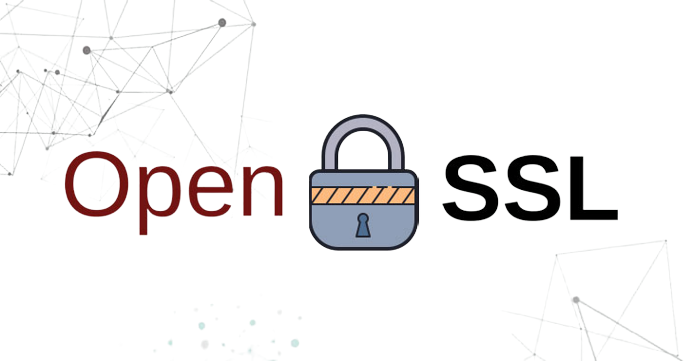 A new OpenSSL vulnerability and security flaw have been discovered that could potentially allow attackers to access sensitive information or even take control of servers. The good news is that this vulnerability, known as CVE-2021-3449, has already been patched in the latest version of OpenSSL. For those not familiar with it, OpenSSL is a software library that provides encryption for many internet protocols such as HTTPS, SMTP, and more.
A new OpenSSL vulnerability and security flaw have been discovered that could potentially allow attackers to access sensitive information or even take control of servers. The good news is that this vulnerability, known as CVE-2021-3449, has already been patched in the latest version of OpenSSL. For those not familiar with it, OpenSSL is a software library that provides encryption for many internet protocols such as HTTPS, SMTP, and more.
It’s used by a large majority of websites and servers worldwide. While the patch is good news, it’s important to note that this vulnerability was discovered just last month. This means that there are likely many systems and servers out there that are still vulnerable.
In this blog post, we’ll discuss the details of the CVE-2021-3449 flaw and what you can do to mitigate the risk on your own systems.
What is the latest OpenSSL Vulnerability?
The latest OpenSSL Vulnerability, CVE-2019-1559, was discovered on April 7th, 2019. This vulnerability allows for a denial of service (DoS) attack on a server that uses the affected versions of OpenSSL. The attacker can send a carefully crafted heartbeat request to the server that will cause the server to crash.
This vulnerability affects OpenSSL versions 1.0.2 and 1.1.0. Users of these versions should upgrade to 1.0.2g or 1.1.1 as soon as possible in order to protect their servers from this attack vector.
How does it affect me?
The latest OpenSSL vulnerability, CVE-2014-0160, affects both servers and clients. Any server using a vulnerable version of OpenSSL is affected, as are any clients that connect to those servers. This includes web servers, email servers, virtual private networks (VPNs), and any other service that uses SSL/TLS.
If you are running a vulnerable server, it is critical that you upgrade to a fixed version of OpenSSL as soon as possible. If you are using a vulnerable client, you should check with your software vendor to see if they have released an update that fixes the issue.
What can I do to protect myself?
 OpenSSL is a widely used open-source cryptography library that provides encryption and secure communications protocols. A recent vulnerability in OpenSSL, nicknamed “Heartbleed“, has caused many Internet users to wonder what they can do to protect themselves from this and other potential threats.
OpenSSL is a widely used open-source cryptography library that provides encryption and secure communications protocols. A recent vulnerability in OpenSSL, nicknamed “Heartbleed“, has caused many Internet users to wonder what they can do to protect themselves from this and other potential threats.
There are a few simple steps you can take to help protect yourself from the Heartbleed vulnerability and other potential threats:
1. Keep your software up to date: Be sure to install the latest security updates for your operating system, web browser, and any other software you use. This will help ensure that you have the latest security patches and features.
2. Use strong passwords: When creating passwords for websites and online accounts, be sure to use strong, unique passwords that are difficult for others to guess. Avoid using easily guessed words or personal information in your passwords.
3. Don’t reuse passwords: Using the same password for multiple websites or accounts is not recommended, as it makes it easier for someone to gain access to all of your accounts if they manage to guess or steal your password. Instead, use different passwords for each website or account you have.
4. Enable two-factor authentication: Many websites and online services offer two-factor authentication, which adds an extra layer of security by requiring you to enter a second code (usually sent via text message) in addition to your password when logging in. This makes it much more difficult for someone to gain unauthorized access to your account
Are there any other steps I can take to secure my data?
Yes, there are other steps that can be taken to secure data. One is to keep the software up to date. OpenSSL releases new versions frequently to patch security vulnerabilities. Therefore, it is important to update software regularly.
Another step that can be taken is to use a VPN. A VPN encrypts all traffic between the user and the VPN server. This means that even if someone were to intercept the data, they would not be able to read it.
Best VPN for OpenSSL Vulnerabilities
HideIPVPN offers a VPN service with military-grade encryption, and high-speed servers with unlimited bandwidth.
Our service comes with shared IP addresses so that your activity can never be tied to one particular user, further protecting your privacy.

We also offer DNS leak protection, a Kill Switch, the latest VPN protocols, and a guaranteed no-log policy.
Best VPN Deal! Get HideIPVPN for $2.7/mo!
Every purchase you make comes with a 30-day money-back guarantee.
Finally, it is also important to use strong passwords. Passwords should be at least 8 characters long and contain a mix of letters, numbers, and symbols. They should also not be words that can be found in a dictionary.
Conclusion
A list of software packages determined to be (un)affected by this OpenSSL issue is kept by the Netherlands’ National Cyber Security Centre.
The most current versions of several well-known Linux distributions include the most recent OpenSSL versions, including Redhat Enterprise Linux 9, Ubuntu 22.04+, CentOS Stream9, Kali 2022.3, Debian 12, and Fedora 36 being identified as vulnerable by cybersecurity firm Akamai.
In order to assist security teams in identifying susceptible assets and organizing them for patching when the security update is made public, Akamai has provided published OSQuery and YARA rules.
It’s always important to stay up-to-date on the latest security vulnerabilities, and the OpenSSL vulnerability in 2022 is no exception. This newly discovered flaw could potentially allow attackers to gain access to sensitive information, so it’s important to patch your system as soon as possible. Stay safe out there!



